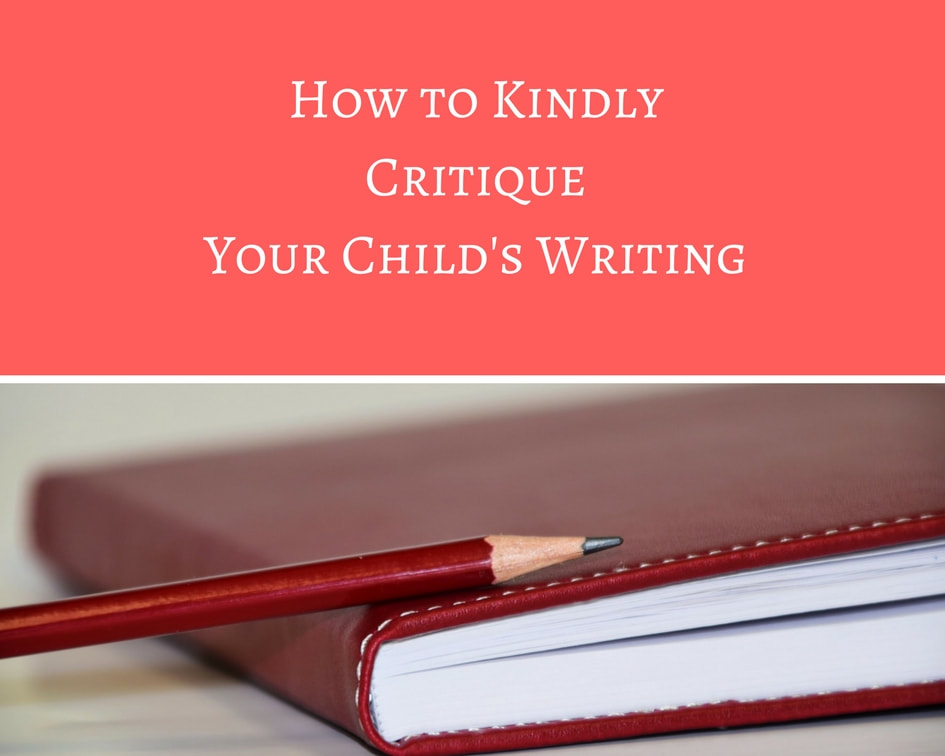 If you struggle with homeschool writing instruction, you are not alone. Many parents struggle with writing instruction and, in particular, how to give comments on writing assignments. As homeschool parents, you want to show your children where they can improve their writing. But you also want to encourage them in their writing journeys. Most importantly, you want to cultivate a warm and close relationship with your children. You don’t want your writing critiques to end up in tears and frustration and broken relationships. So, how can you strike a balance between being a tough editor, wielding a red pen, and being hand-holding, warm-hearted mom? In this post, we’d like to pass along a simple but effective framework for kindly critiquing your child’s writing. All you have to do is remember this quick phrase: Compliment— Constructive Criticism— Compliment What does this mean? It’s quite simple, really. All you have to do is begin with a positive comment. Follow it up with constructive criticism. Then end with another positive comment. Why is this effective? Constructive criticism is much easier to take if it is sandwiched between positive comments. Students will be looking for positive comments, so you will be fulfilling their emotional needs. You will also be sneaking in some constructive criticism, so you will also be fulfilling your job as a homeschool teacher. What does this look like in practice? First, note one or two good things about the child’s writing. For example,
Second, note a few areas for improvement. For example,
Third, end on a positive, encouraging note. For example,
We hope this was helpful to you. The Compliment— Constructive Criticism— Compliment is a tried and true framework because it is based on sound wisdom. It is your job as a homeschool parent to provide constructive criticism. But that criticism is more likely to be accepted if it is couched in kindness.
0 Comments
Leave a Reply. |
Silverdale PressCheck out our About Page to learn more about us! Categories |

 RSS Feed
RSS Feed